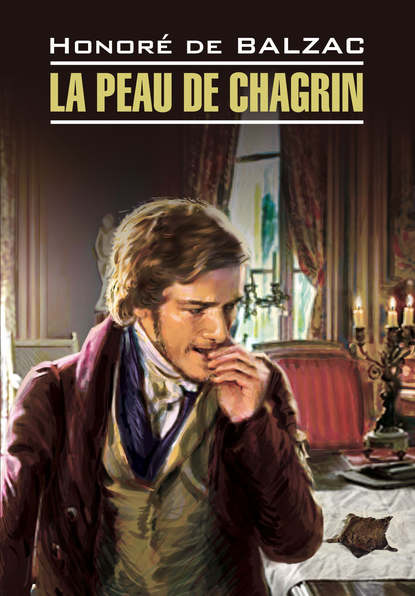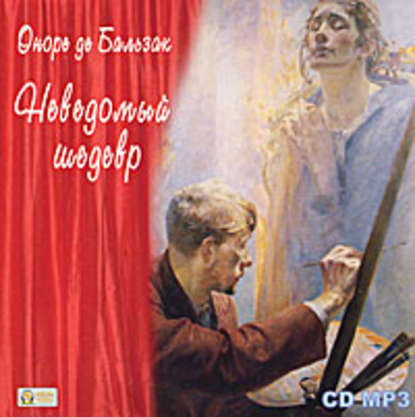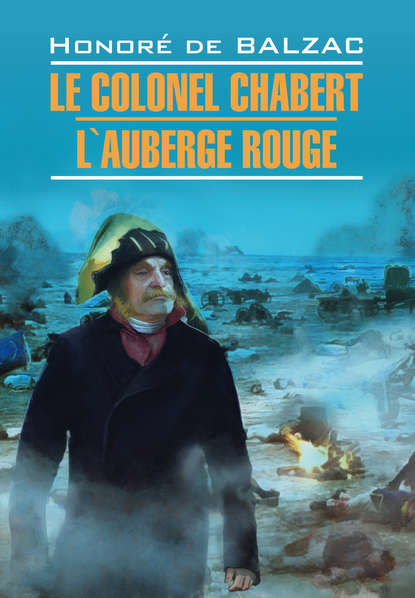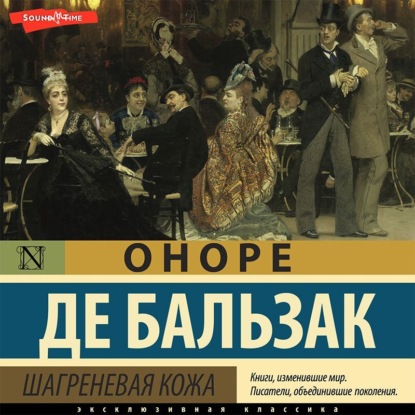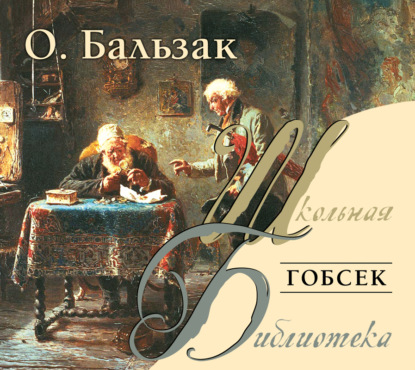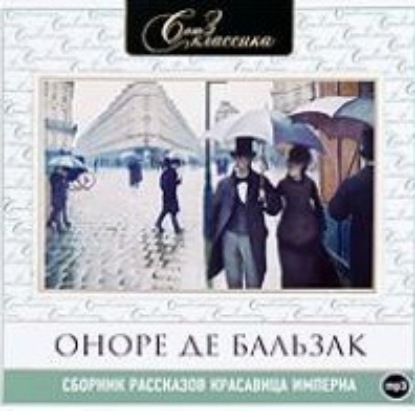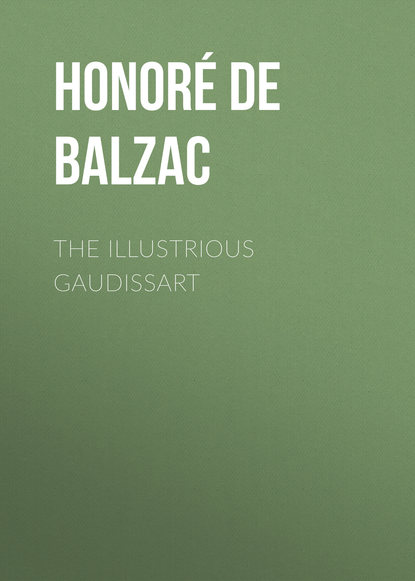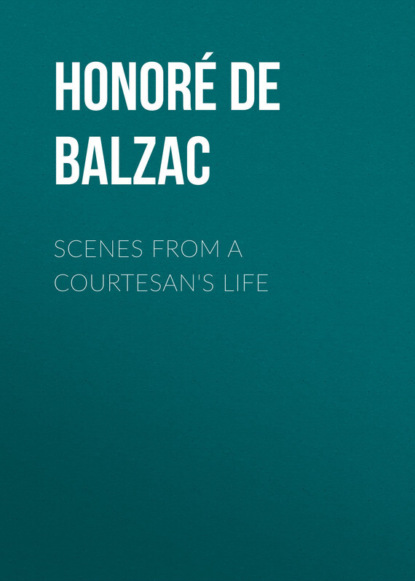
Полная версия
Scenes from a Courtesan's Life
“Tell me de name of dat clefer fellow, and depent on my generosity – ”
Louchard took up his hat, bowed, and left the room.
“Wat ein teufel!” cried Nucingen. “Come back – look here – ”
“Take notice,” said Louchard, before taking the money, “I am only selling a piece of information, pure and simple. I can give you the name and address of the only man who is able to be of use to you – but he is a master – ”
“Get out mit you,” cried Nucingen. “Dere is not no name dat is vort one tousant crown but dat von Varschild – and dat only ven it is sign at the bottom of a bank-bill. – I shall gif you one tousant franc.”
Louchard, a little weasel, who had never been able to purchase an office as lawyer, notary, clerk, or attorney, leered at the Baron in a significant fashion.
“To you – a thousand crowns, or let it alone. You will get them back in a few seconds on the Bourse,” said he.
“I will gif you one tousant franc,” repeated the Baron.
“You would cheapen a gold mine!” said Louchard, bowing and leaving.
“I shall get dat address for five hundert franc!” cried the Baron, who desired his servant to send his secretary to him.
Turcaret is no more. In these days the smallest banker, like the greatest, exercises his acumen in the smallest transactions; he bargains over art, beneficence, and love; he would bargain with the Pope for a dispensation. Thus, as he listened to Louchard, Nucingen had hastily concluded that Contenson, Louchard’s right-hand man, must certainly know the address of that master spy. Contenson would tell him for five hundred francs what Louchard wanted to see a thousand crowns for. The rapid calculation plainly proves that if the man’s heart was in possession of love, his head was still that of the lynx stock-jobber.
“Go your own self, mensieur,” said the Baron to his secretary, “to Contenson, dat spy of Louchart’s de bailiff man – but go in one capriolette, very qvick, and pring him here qvick to me. I shall vait. – Go out trough de garten. – Here is dat key, for no man shall see dat man in here. You shall take him into dat little garten-house. Try to do dat little business very clefer.”
Visitors called to see Nucingen on business; but he waited for Contenson, he was dreaming of Esther, telling himself that before long he would see again the woman who had aroused in him such unhoped-for emotions, and he sent everybody away with vague replies and double-edged promises. Contenson was to him the most important person in Paris, and he looked out into the garden every minute. Finally, after giving orders that no one else was to be admitted, he had his breakfast served in the summer-house at one corner of the garden. In the banker’s office the conduct and hesitancy of the most knowing, the most clearsighted, the shrewdest of Paris financiers seemed inexplicable.
“What ails the chief?” said a stockbroker to one of the head-clerks.
“No one knows; they are anxious about his health, it would seem. Yesterday, Madame la Baronne got Desplein and Bianchon to meet.”
One day, when Sir Isaac Newton was engaged in physicking one of his dogs, named “Beauty” (who, as is well known, destroyed a vast amount of work, and whom he reproved only in these words, “Ah! Beauty, you little know the mischief you have done!”), some strangers called to see him; but they at once retired, respecting the great man’s occupation. In every more or less lofty life, there is a little dog “Beauty.” When the Marechal de Richelieu came to pay his respects to Louis XV. after taking Mahon, one of the greatest feats of arms of the eighteenth century, the King said to him, “Have you heard the great news? Poor Lansmatt is dead.” – Lansmatt was a gatekeeper in the secret of the King’s intrigues.
The bankers of Paris never knew how much they owed to Contenson. That spy was the cause of Nucingen’s allowing an immense loan to be issued in which his share was allotted to him, and which he gave over to them. The stock-jobber could aim at a fortune any day with the artillery of speculation, but the man was a slave to the hope of happiness.
The great banker drank some tea, and was nibbling at a slice of bread and butter, as a man does whose teeth have for long been sharpened by appetite, when he heard a carriage stop at the little garden gate. In a few minutes his secretary brought in Contenson, whom he had run to earth in a cafe not far from Sainte-Pelagie, where the man was breakfasting on the strength of a bribe given to him by an imprisoned debtor for certain allowances that must be paid for.
Contenson, you must know, was a whole poem – a Paris poem. Merely to see him would have been enough to tell you that Beaumarchais’ Figaro, Moliere’s Mascarille, Marivaux’s Frontin, and Dancourt’s Lafleur– those great representatives of audacious swindling, of cunning driven to bay, of stratagem rising again from the ends of its broken wires – were all quite second-rate by comparison with this giant of cleverness and meanness. When in Paris you find a real type, he is no longer a man, he is a spectacle; no longer a factor in life, but a whole life, many lives.
Bake a plaster cast four times in a furnace, and you get a sort of bastard imitation of Florentine bronze. Well, the thunderbolts of numberless disasters, the pressure of terrible necessities, had bronzed Contenson’s head, as though sweating in an oven had three times over stained his skin. Closely-set wrinkles that could no longer be relaxed made eternal furrows, whiter in their cracks. The yellow face was all wrinkles. The bald skull, resembling Voltaire’s, was as parched as a death’s-head, and but for a few hairs at the back it would have seemed doubtful whether it was that of a living man. Under a rigid brow, a pair of Chinese eyes, like those of an image under a glass shade in a tea-shop – artificial eyes, which sham life but never vary – moved but expressed nothing. The nose, as flat as that of a skull, sniffed at fate; and the mouth, as thin-lipped as a miser’s, was always open, but as expressionless as the grin of a letterbox.
Contenson, as apathetic as a savage, with sunburned hands, affected that Diogenes-like indifference which can never bend to any formality of respect.
And what a commentary on his life was written on his dress for any one who can decipher a dress! Above all, what trousers! made, by long wear, as black and shiny as the camlet of which lawyers’ gowns are made! A waistcoat, bought in an old clothes shop in the Temple, with a deep embroidered collar! A rusty black coat! – and everything well brushed, clean after a fashion, and graced by a watch and an imitation gold chain. Contenson allowed a triangle of shirt to show, with pleats in which glittered a sham diamond pin; his black velvet stock set stiff like a gorget, over which lay rolls of flesh as red as that of a Caribbee. His silk hat was as glossy as satin, but the lining would have yielded grease enough for two street lamps if some grocer had bought it to boil down.
But to enumerate these accessories is nothing; if only I could give an idea of the air of immense importance that Contenson contrived to impart to them! There was something indescribably knowing in the collar of his coat, and the fresh blacking on a pair of boots with gaping soles, to which no language can do justice. However, to give some notion of this medley of effect, it may be added that any man of intelligence would have felt, only on seeing Contenson, that if instead of being a spy he had been a thief, all these odds and ends, instead of raising a smile, would have made one shudder with horror. Judging only from his dress, the observer would have said to himself, “That is a scoundrel; he gambles, he drinks, he is full of vices; but he does not get drunk, he does not cheat, he is neither a thief nor a murderer.” And Contenson remained inscrutable till the word spy suggested itself.
This man had followed as many unrecognized trades as there are recognized ones. The sly smile on his lips, the twinkle of his green eyes, the queer twitch of his snub nose, showed that he was not deficient in humor. He had a face of sheet-tin, and his soul must probably be like his face. Every movement of his countenance was a grimace wrung from him by politeness rather than by any expression of an inmost impulse. He would have been alarming if he had not seemed so droll.
Contenson, one of the most curious products of the scum that rises to the top of the seething Paris caldron, where everything ferments, prided himself on being, above all things, a philosopher. He would say, without any bitter feeling:
“I have great talents, but of what use are they? I might as well have been an idiot.”
And he blamed himself instead of accusing mankind. Find, if you can, many spies who have not had more venom about them than Contenson had.
“Circumstances are against me,” he would say to his chiefs. “We might be fine crystal; we are but grains of sand, that is all.”
His indifference to dress had some sense. He cared no more about his everyday clothes than an actor does; he excelled in disguising himself, in “make-up”; he could have given Frederic Lemaitre a lesson, for he could be a dandy when necessary. Formerly, in his younger days, he must have mingled in the out-at-elbows society of people living on a humble scale. He expressed excessive disgust for the criminal police corps; for, under the Empire, he had belonged to Fouche’s police, and looked upon him as a great man. Since the suppression of this Government department, he had devoted his energies to the tracking of commercial defaulters; but his well-known talents and acumen made him a valuable auxiliary, and the unrecognized chiefs of the political police had kept his name on their lists. Contenson, like his fellows, was only a super in the dramas of which the leading parts were played by his chief when a political investigation was in the wind.
“Go ‘vay,” said Nucingen, dismissing his secretary with a wave of the hand.
“Why should this man live in a mansion and I in a lodging?” wondered Contenson to himself. “He has dodged his creditors three times; he has robbed them; I never stole a farthing; I am a cleverer fellow than he is – ”
“Contenson, mein freund,” said the Baron, “you haf vat you call pleed me of one tousand-franc note.”
“My girl owed God and the devil – ”
“Vat, you haf a girl, a mistress!” cried Nucingen, looking at Contenson with admiration not unmixed with envy.
“I am but sixty-six,” replied Contenson, as a man whom vice has kept young as a bad example.
“And vat do she do?”
“She helps me,” said Contenson. “When a man is a thief, and an honest woman loves him, either she becomes a thief or he becomes an honest man. I have always been a spy.”
“And you vant money – alvays?” asked Nucingen.
“Always,” said Contenson, with a smile. “It is part of my business to want money, as it is yours to make it; we shall easily come to an understanding. You find me a little, and I will undertake to spend it. You shall be the well, and I the bucket.”
“Vould you like to haf one note for fife hundert franc?”
“What a question! But what a fool I am! – You do not offer it out of a disinterested desire to repair the slights of Fortune?”
“Not at all. I gif it besides the one tousand-franc note vat you pleed me off. Dat makes fifteen hundert franc vat I gif you.”
“Very good, you give me the thousand francs I have had and you will add five hundred francs.”
“Yust so,” said Nucingen, nodding.
“But that still leaves only five hundred francs,” said Contenson imperturbably.
“Dat I gif,” added the Baron.
“That I take. Very good; and what, Monsieur le Baron, do you want for it?”
“I haf been told dat dere vas in Paris one man vat could find the voman vat I lof, and dat you know his address… A real master to spy.”
“Very true.”
“Vell den, gif me dat address, and I gif you fife hundert franc.”
“Where are they?” said Contenson.
“Here dey are,” said the Baron, drawing a note out of his pocket.
“All right, hand them over,” said Contenson, holding out his hand.
“Noting for noting! Le us see de man, and you get de money; you might sell to me many address at dat price.”
Contenson began to laugh.
“To be sure, you have a right to think that of me,” said he, with an air of blaming himself. “The more rascally our business is, the more honesty is necessary. But look here, Monsieur le Baron, make it six hundred, and I will give you a bit of advice.”
“Gif it, and trust to my generosity.”
“I will risk it,” Contenson said, “but it is playing high. In such matters, you see, we have to work underground. You say, ‘Quick march!’ – You are rich; you think that money can do everything. Well, money is something, no doubt. Still, money can only buy men, as the two or three best heads in our force so often say. And there are many things you would never think of which money cannot buy. – You cannot buy good luck. So good police work is not done in this style. Will you show yourself in a carriage with me? We should be seen. Chance is just as often for us as against us.”
“Really-truly?” said the Baron.
“Why, of course, sir. A horseshoe picked up in the street led the chief of the police to the discovery of the infernal machine. Well, if we were to go to-night in a hackney coach to Monsieur de Saint-Germain, he would not like to see you walk in any more than you would like to be seen going there.”
“Dat is true,” said the Baron.
“Ah, he is the greatest of the great! such another as the famous Corentin, Fouche’s right arm, who was, some say, his natural son, born while he was still a priest; but that is nonsense. Fouche knew how to be a priest as he knew how to be a Minister. Well, you will not get this man to do anything for you, you see, for less than ten thousand-franc notes – think of that. – But he will do the job, and do it well. Neither seen nor heard, as they say. I ought to give Monsieur de Saint-Germanin notice, and he will fix a time for your meeting in some place where no one can see or hear, for it is a dangerous game to play policeman for private interests. Still, what is to be said? He is a good fellow, the king of good fellows, and a man who has undergone much persecution, and for having saving his country too! – like me, like all who helped to save it.”
“Vell den, write and name de happy day,” said the Baron, smiling at his humble jest.
“And Monsieur le Baron will allow me to drink his health?” said Contenson, with a manner at once cringing and threatening.
“Shean,” cried the Baron to the gardener, “go and tell Chorge to sent me one twenty francs, and pring dem to me – ”
“Still, Monsieur le Baron, if you have no more information than you have just given me, I doubt whether the great man can be of any use to you.”
“I know off oders!” replied the Baron with a cunning look.
“I have the honor to bid you good-morning, Monsieur le Baron,” said Contenson, taking the twenty-franc piece. “I shall have the honor of calling again to tell Georges where you are to go this evening, for we never write anything in such cases when they are well managed.”
“It is funny how sharp dese rascals are!” said the Baron to himself; “it is de same mit de police as it is in buss’niss.”
When he left the Baron, Contenson went quietly from the Rue Saint-Lazare to the Rue Saint-Honore, as far as the Cafe David. He looked in through the windows, and saw an old man who was known there by the name of le Pere Canquoelle.
The Cafe David, at the corner of the Rue de la Monnaie and the Rue Saint-Honore, enjoyed a certain celebrity during the first thirty years of the century, though its fame was limited to the quarter known as that of the Bourdonnais. Here certain old retired merchants, and large shopkeepers still in trade, were wont to meet – the Camusots, the Lebas, the Pilleraults, the Popinots, and a few house-owners like little old Molineux. Now and again old Guillaume might be seen there, coming from the Rue du Colombier. Politics were discussed in a quiet way, but cautiously, for the opinions of the Cafe David were liberal. The gossip of the neighborhood was repeated, men so urgently feel the need of laughing at each other!
This cafe, like all cafes for that matter, had its eccentric character in the person of the said Pere Canquoelle, who had been regular in his attendance there since 1811, and who seemed to be so completely in harmony with the good folks who assembled there, that they all talked politics in his presence without reserve. Sometimes this old fellow, whose guilelessness was the subject of much laughter to the customers, would disappear for a month or two; but his absence never surprised anybody, and was always attributed to his infirmities or his great age, for he looked more than sixty in 1811.
“What has become of old Canquoelle?” one or another would ask of the manageress at the desk.
“I quite expect that one fine day we shall read in the advertisement-sheet that he is dead,” she would reply.
Old Canquoelle bore a perpetual certificate of his native province in his accent. He spoke of une estatue (a statue), le peuble (the people), and said ture for turc. His name was that of a tiny estate called les Canquoelles, a word meaning cockchafer in some districts, situated in the department of Vaucluse, whence he had come. At last every one had fallen into the habit of calling him Canquoelle, instead of des Canquoelles, and the old man took no offence, for in his opinion the nobility had perished in 1793; and besides, the land of les Canquoelles did not belong to him; he was a younger son’s younger son.
Nowadays old Canquoelle’s costume would look strange, but between 1811 and 1820 it astonished no one. The old man wore shoes with cut-steel buckles, silk stockings with stripes round the leg, alternately blue and white, corded silk knee-breeches with oval buckles cut to match those on his shoes. A white embroidered waistcoat, an old coat of olive-brown with metal buttons, and a shirt with a flat-pleated frill completed his costume. In the middle of the shirt-frill twinkled a small gold locket, in which might be seen, under glass, a little temple worked in hair, one of those pathetic trifles which give men confidence, just as a scarecrow frightens sparrows. Most men, like other animals, are frightened or reassured by trifles. Old Canquoelle’s breeches were kept in place by a buckle which, in the fashion of the last century, tightened them across the stomach; from the belt hung on each side a short steel chain, composed of several finer chains, and ending in a bunch of seals. His white neckcloth was fastened behind by a small gold buckle. Finally, on his snowy and powdered hair, he still, in 1816, wore the municipal cocked hat which Monsieur Try, the President of the Law Courts, also used to wear. But Pere Canquoelle had recently substituted for this hat, so dear to old men, the undignified top-hat, which no one dares to rebel against. The good man thought he owed so much as this to the spirit of the age. A small pigtail tied with a ribbon had traced a semicircle on the back of his coat, the greasy mark being hidden by powder.
If you looked no further than the most conspicuous feature of his face, a nose covered with excrescences red and swollen enough to figure in a dish of truffles, you might have inferred that the worthy man had an easy temper, foolish and easy-going, that of a perfect gaby; and you would have been deceived, like all at the Cafe David, where no one had ever remarked the studious brow, the sardonic mouth, and the cold eyes of this old man, petted by his vices, and as calm as Vitellius, whose imperial and portly stomach reappeared in him palingenetically, so to speak.
In 1816 a young commercial traveler named Gaudissart, who frequented the Cafe David, sat drinking from eleven o’clock till midnight with a half-pay officer. He was so rash as to discuss a conspiracy against the Bourbons, a rather serious plot then on the point of execution. There was no one to be seen in the cafe but Pere Canquoelle, who seemed to be asleep, two waiters who were dozing, and the accountant at the desk. Within four-and-twenty hours Gaudissart was arrested, the plot was discovered. Two men perished on the scaffold. Neither Gaudissart nor any one else ever suspected that worthy old Canquoelle of having peached. The waiters were dismissed; for a year they were all on their guard and afraid of the police – as Pere Canquoelle was too; indeed, he talked of retiring from the Cafe David, such horror had he of the police.
Contenson went into the cafe, asked for a glass of brandy, and did not look at Canquoelle, who sat reading the papers; but when he had gulped down the brandy, he took out the Baron’s gold piece, and called the waiter by rapping three short raps on the table. The lady at the desk and the waiter examined the coin with a minute care that was not flattering to Contenson; but their suspicions were justified by the astonishment produced on all the regular customers by Contenson’s appearance.
“Was that gold got by theft or by murder?”
This was the idea that rose to some clear and shrewd minds as they looked at Contenson over their spectacles, while affecting to read the news. Contenson, who saw everything and never was surprised at anything, scornfully wiped his lips with a bandana, in which there were but three darns, took his change, slipped all the coppers into his side pocket, of which the lining, once white, was now as black as the cloth of the trousers, and did not leave one for the waiter.
“What a gallows-bird!” said Pere Canquoelle to his neighbor Monsieur Pillerault.
“Pshaw!” said Monsieur Camusot to all the company, for he alone had expressed no astonishment, “it is Contenson, Louchard’s right-hand man, the police agent we employ in business. The rascals want to nab some one who is hanging about perhaps.”
It would seem necessary to explain here the terrible and profoundly cunning man who was hidden under the guise of Pere Canquoelle, as Vautrin was hidden under that of the Abbe Carlos.
Born at Canquoelles, the only possession of his family, which was highly respectable, this Southerner’s name was Peyrade. He belonged, in fact, to the younger branch of the Peyrade family, an old but impoverished house of Franche Comte, still owning the little estate of la Peyrade. The seventh child of his father, he had come on foot to Paris in 1772 at the age of seventeen, with two crowns of six francs in his pocket, prompted by the vices of an ardent spirit and the coarse desire to “get on,” which brings so many men to Paris from the south as soon as they understand that their father’s property can never supply them with means to gratify their passions. It is enough to say of Peyrade’s youth that in 1782 he was in the confidence of chiefs of the police and the hero of the department, highly esteemed by MM. Lenoir and d’Albert, the last Lieutenant-Generals of Police.
The Revolution had no police; it needed none. Espionage, though common enough, was called public spirit.
The Directorate, a rather more regular government than that of the Committee of Public Safety, was obliged to reorganize the Police, and the first Consul completed the work by instituting a Prefect of Police and a department of police supervision.
Peyrade, a man knowing the traditions, collected the force with the assistance of a man named Corentin, a far cleverer man than Peyrade, though younger; but he was a genius only in the subterranean ways of police inquiries. In 1808 the great services Peyrade was able to achieve were rewarded by an appointment to the eminent position of Chief Commissioner of Police at Antwerp. In Napoleon’s mind this sort of Police Governorship was equivalent to a Minister’s post, with the duty of superintending Holland. At the end of the campaign of 1809, Peyrade was removed from Antwerp by an order in Council from the Emperor, carried in a chaise to Paris between two gendarmes, and imprisoned in la Force. Two months later he was let out on bail furnished by his friend Corentin, after having been subjected to three examinations, each lasting six hours, in the office of the head of the Police.
Did Peyrade owe his overthrow to the miraculous energy he displayed in aiding Fouche in the defence of the French coast when threatened by what was known at the time as the Walcheren expedition, when the Duke of Otranto manifested such abilities as alarmed the Emperor? Fouche thought it probable even then; and now, when everybody knows what went on in the Cabinet Council called together by Cambaceres, it is absolutely certain. The Ministers, thunderstruck by the news of England’s attempt, a retaliation on Napoleon for the Boulogne expedition, and taken by surprise when the Master was entrenched in the island of Lobau, where all Europe believed him to be lost, had not an idea which way to turn. The general opinion was in favor of sending post haste to the Emperor; Fouche alone was bold enough to sketch a plan of campaign, which, in fact, he carried into execution.



